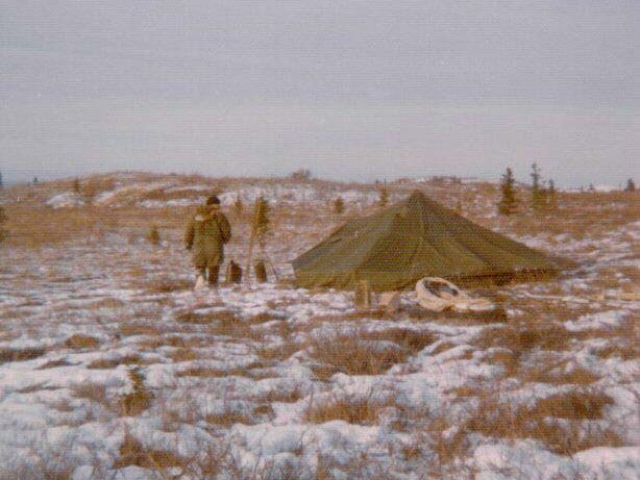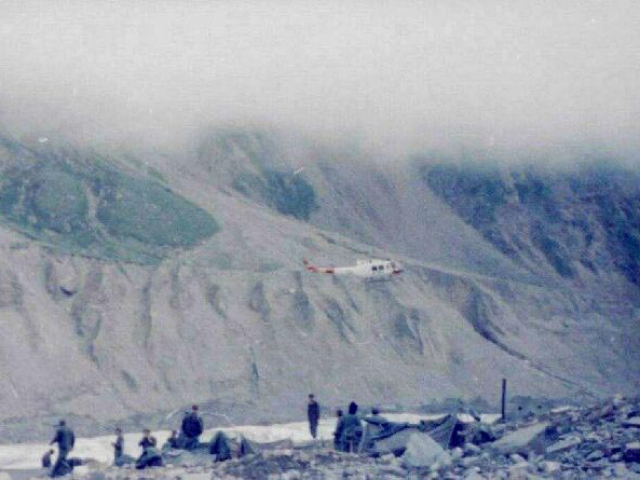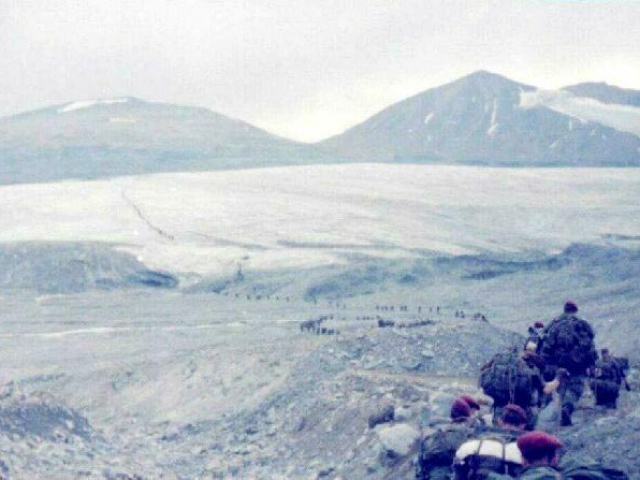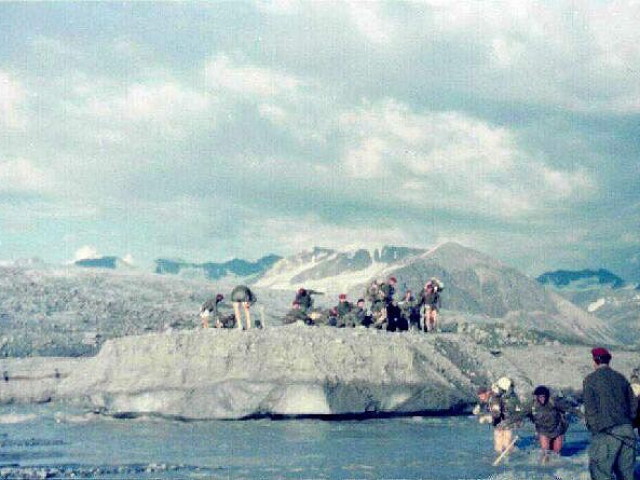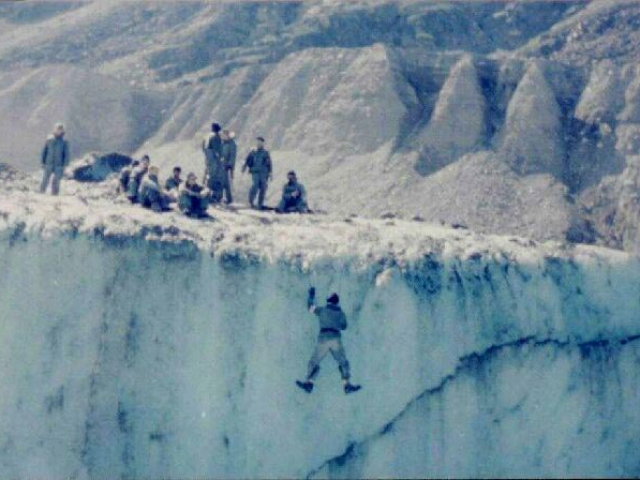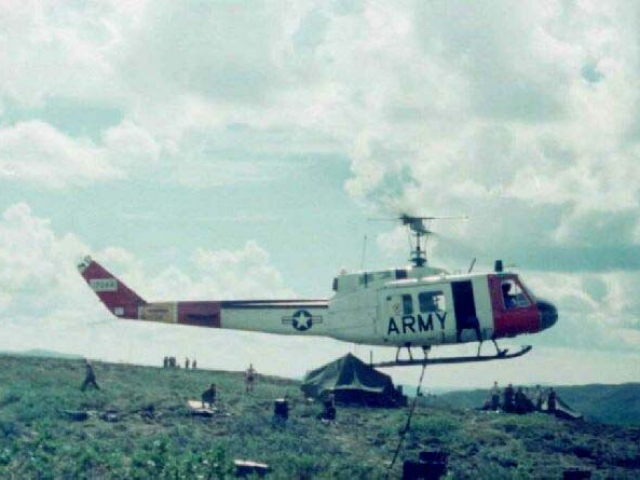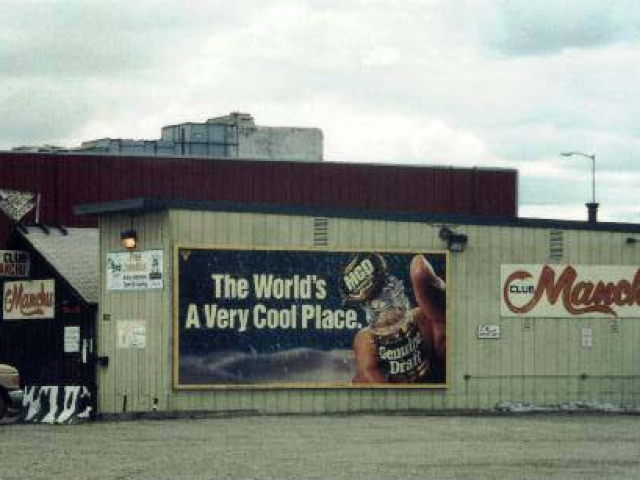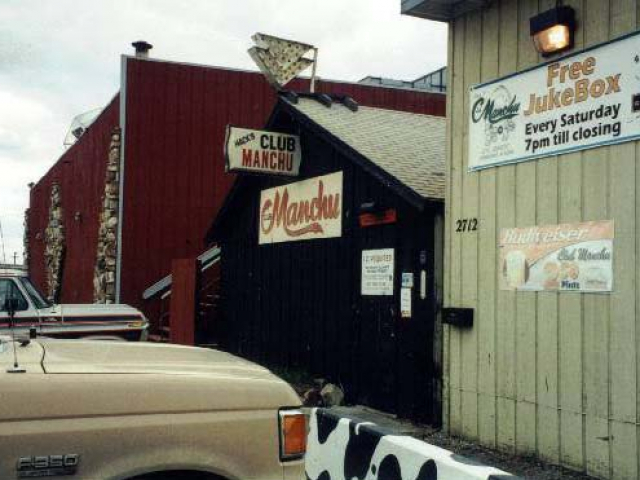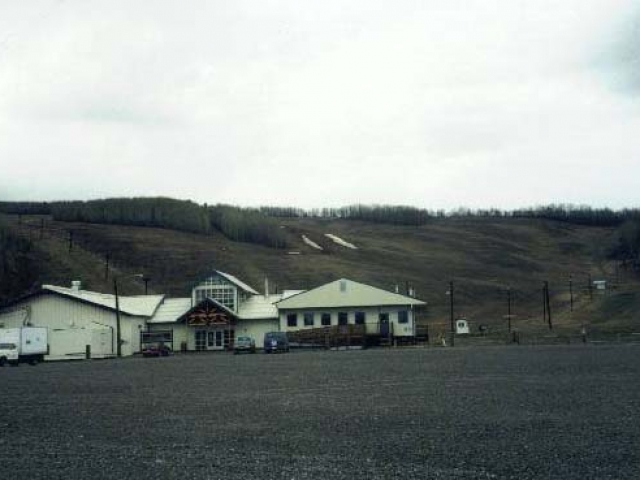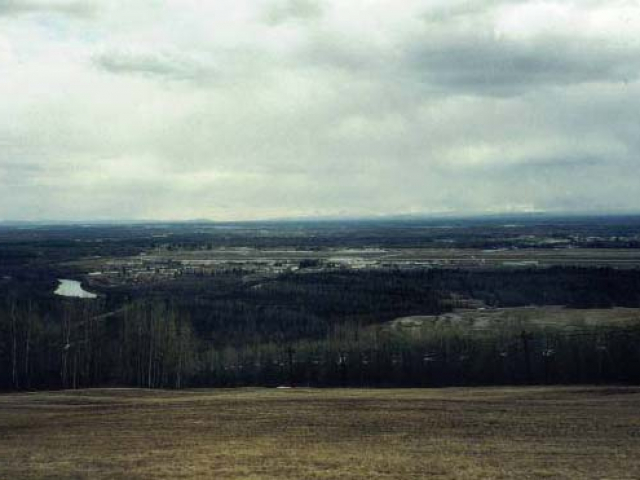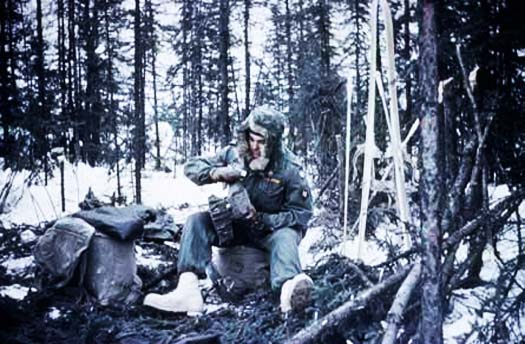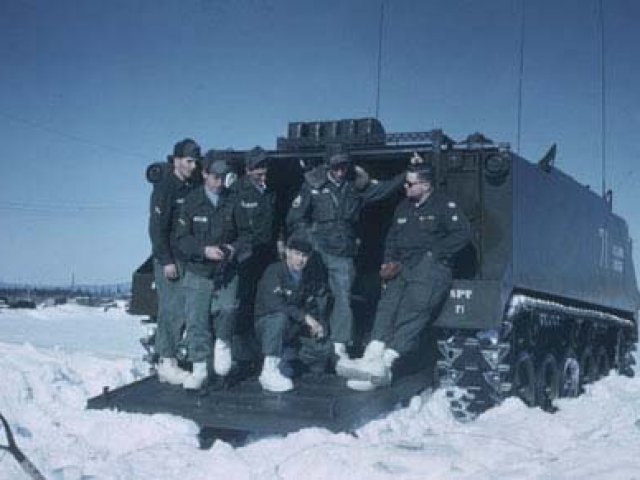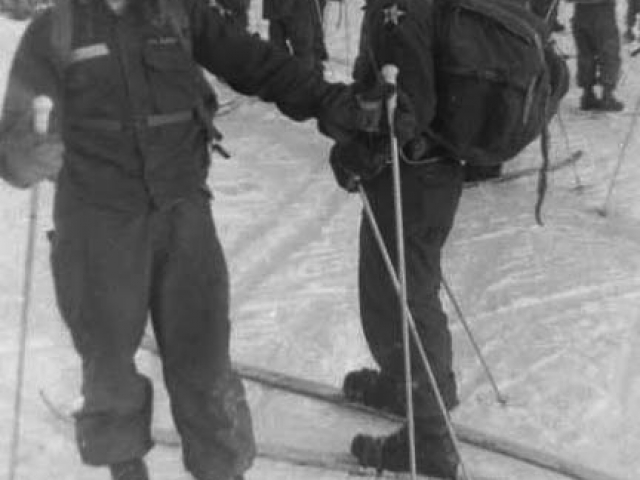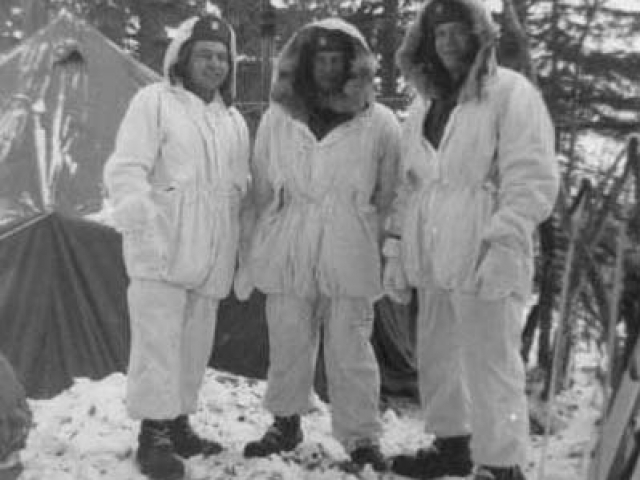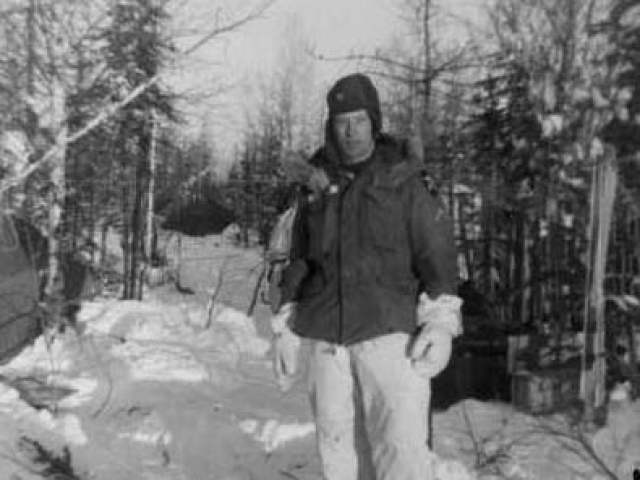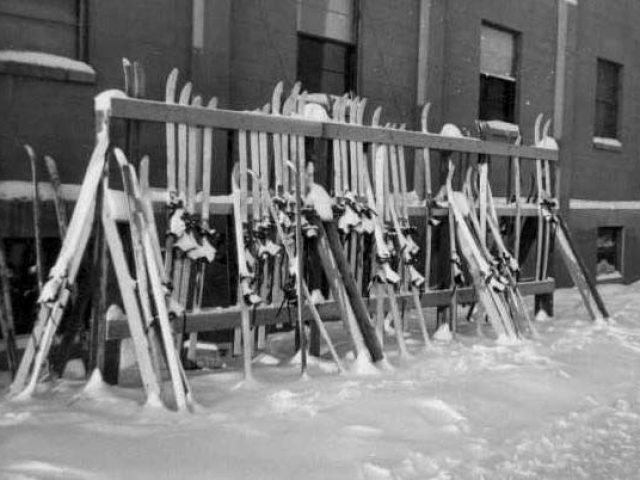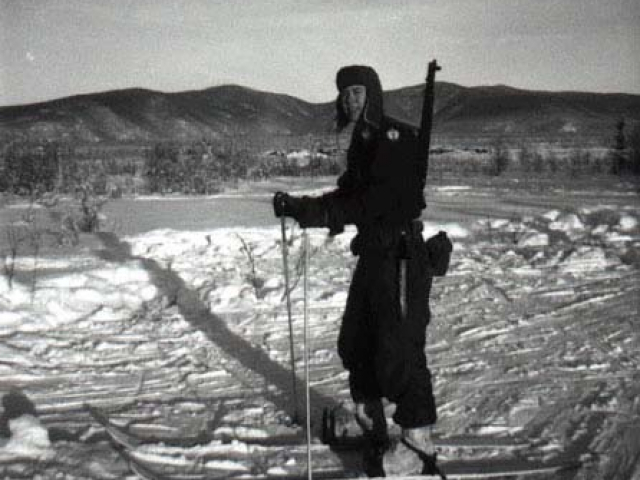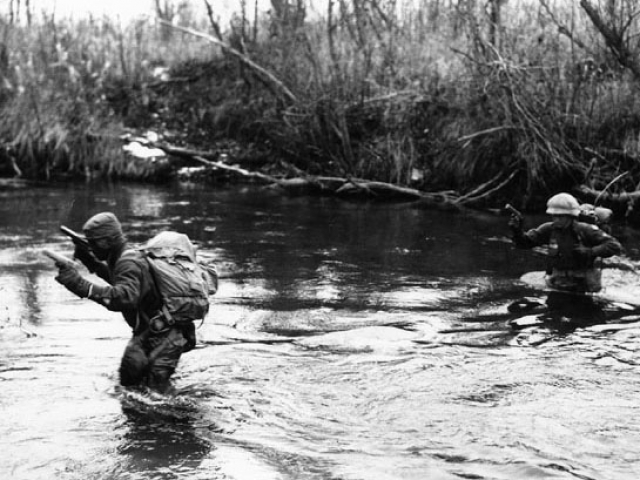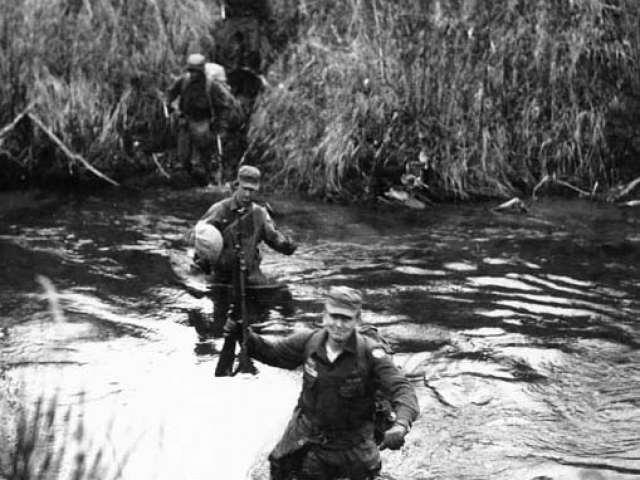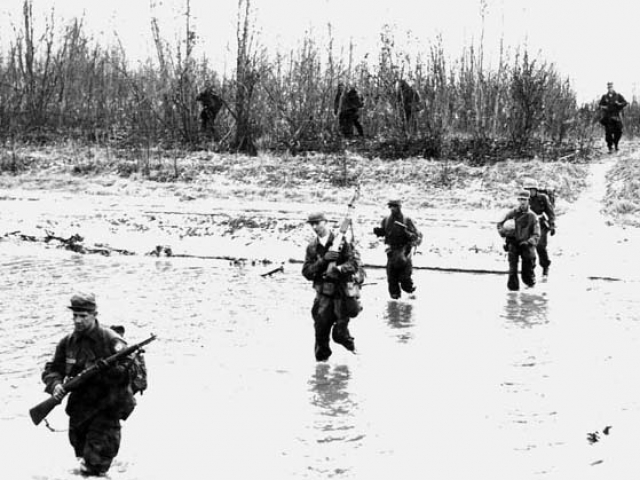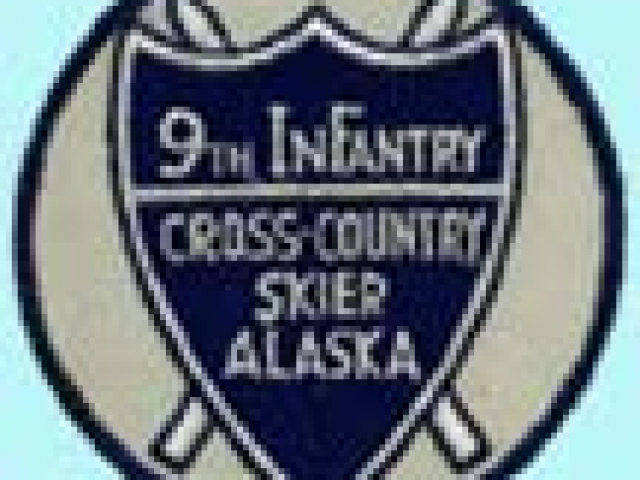
Arctic Warriors… Alaska
The 9th has a long history with the state of Alaska.. The Regiment was first dispatched to Alaska in September of 1867, to assist in operating the newly acquired Alaska Territory.
If you have any pictures or other information about the 9th Infantry Regiment in Alaska please contact the Webmaster.
Charles Storey MEDIC 4th/9th 1975/77
Photos Supplied by: Charles Storey MEDIC HHC 4th/9th 1975/77
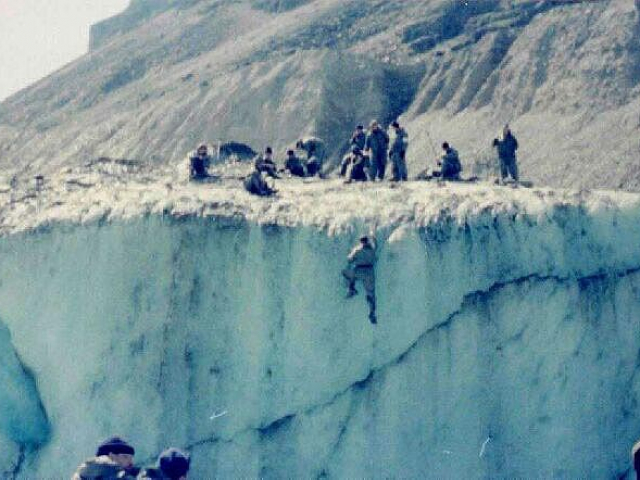
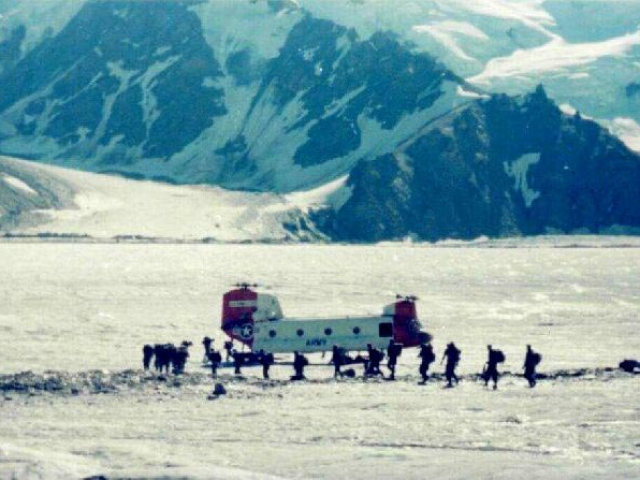
Images below supplied by:
Richard Krause 1/9 56/57, Frank Lurz 1/9 61/63 and J.Mason HQ 1/9 58/60
Ski Review
This picture was taken in spring of 1962. Every year the Regiment had a ski parade called the "Manchu Ski Review." The units skied in company mass formation, as the photo shows, with a column of armor following up at the end. In '62 my platoon was towed on a rope past the reviewing stand by a fast moving APC. (The practice is known as "skijoring") We told the NCO commanding the APC that moving too slowly made the skiing more difficult because snow pushed aside by the vehicle fell back into the path the men were skiing in. As we passed the reviewing stand he lost his nerve and slowed the APC down anyway. The man behind me fell, and because the men behind him were all being towed on the same rope, they all ran into him and fell down in turn. A whole squad of men ended up laying there, with arms, legs, and skis, and ski poles poking up into the air, in every direction, right in front of the reviewing stand!
Frank Lurz 1961/63
The ski parade of the winter of 59-60, was the first one that I know of. It was to honor Secretary of the Army Brucker. A heated stand was built for the dignitaries so they could give their long winded speeches. Our Colonel (Richards or something like that), was very warm and talkative. When the secretary was introduced, his speech went something like "Jesus Christ it's cold, let's get out of here!" It was cold, about -60, and Battle Group had close to 10% casualties from frostbite. My cheeks and thumbs got slightly frostbitten. The photos I sent showing an Otter, was the Colonel's, I was his driver for it. During the parade, I managed to get back inside and kept the motor (and heater), running.
J.Mason HQ 1/9 1958/60
The Hawk
Hardened against the extremes of the arctic environment, typically referred to as "The Hawk," Manchus of the '60s were capable of bivouacking without the protection of anything other than their sleeping bags and ponchos, even in the coldest months of winter. Dehydration can be a real problem in winter for a number of reasons. Carrying rucksacks of 45 lb and more along with a 10 lb M1 rifle, and frequently pulling as much as 300 lb of equipment on a cross-country sled called an "akhio," Manchus of the early '60s often lost a lot of water through respiration. Added to this, the cold weather in Alaska's interior produces air which is very dry. While drinking water would seem the simple way to solve the problem, temperatures ranging from -20 to -70 freeze canteens pretty quickly, and while there's plenty of snow around, eating it can lower body temperature, especially if a trooper becomes tired. To keep water from freezing overnight, men kept their canteens with them in their sleeping bags. Sitting on his rucksack, Sp 4 David Cormack, from Combat Support Co., drinks up before hitting the trail.
Frank Lurz 1961/63
During the last week of Operation Great Bear my squad and I were locked up in an APC that rumbled cross-country for three consecutive days, and it was axiomatic then that no heater in a military vehicle was authorized to work. I don't know how cold it got at the time, but the temperature took a serious drop, probably somewhere in the -30s to -40s. All our C-rations were frozen so we pulled the interior wall panels off the engines, despite warnings painted in big red letters that said, "DO NOT REMOVE - CARBON MONOXIDE." To keep from being gassed we opened the top of the APC and then put our C-ration cans on the engine manifolds to thaw them out. The food did thaw a little, but with the top of the APC wide open, we just kept getting colder and colder. One guy climbed on top and tried positioning himself near the exhaust vent to keep warm, but his overwhites caught fire. Unable to move around in that small space, we eventually got so cold that everyone who had fillings in his teeth came down with a head full of toothaches.
Throughout the entire episode I had kept in a pocket of my field jacket a packet of cocoa powder, thinking day after day of the rapturous delight of drinking it, steaming hot. The thought became an obsession bordering on insanity which nevertheless kept me going during the entire miserable affair. We had no liquid water when we finally reached our destination, so the first thing I did when we stopped was to start melting snow.
Because it's so cold in the Alaskan interior snow is usually not very dense. Consequently, it took about ten canteen cupfuls of snow to make just one of water; a long and laborious process that steadily built up such a state of anxiety that I could scarcely contain myself. I scooped up the last mittenful of snow and placed it into the canteen cup, quaking with anticipation for the ecstasy I knew would soon follow. As the lump of snow began to melt away I got the spoon from my mess kit and then pulled the cocoa from my pocket. With trembling, half frozen fingers I carefully tore open the the packet. Oh, God! Any minute now!!
I looked down into the canteen cup, expecting to see that all the snow had finally melted. It had, but to my horror I saw floating in the bottom of the cup a precious gift that had been hidden in the last mitful of snow; a lovely, golden brown little present, just for me, that had been carefully, lovingly placed there after it had left the north end of a scheming, diabolically clever, southbound arctic hare. For a moment I became paralyzed as I looked at the thing, first with consternation and then with revulsion. The paralysis lasted all of about about ten seconds - ten seconds too many I decided - and I wasn't about to let one more second pass. Using my spoon, I fished the disgusting thing out of the water, added the cocoa and stirred. To this day I can tell you, that was the best goddam cup of cocoa I ever had!
Frank Lurz

